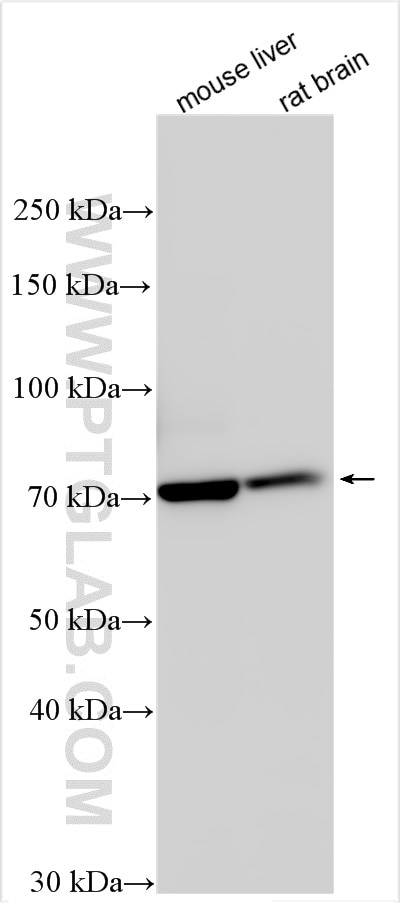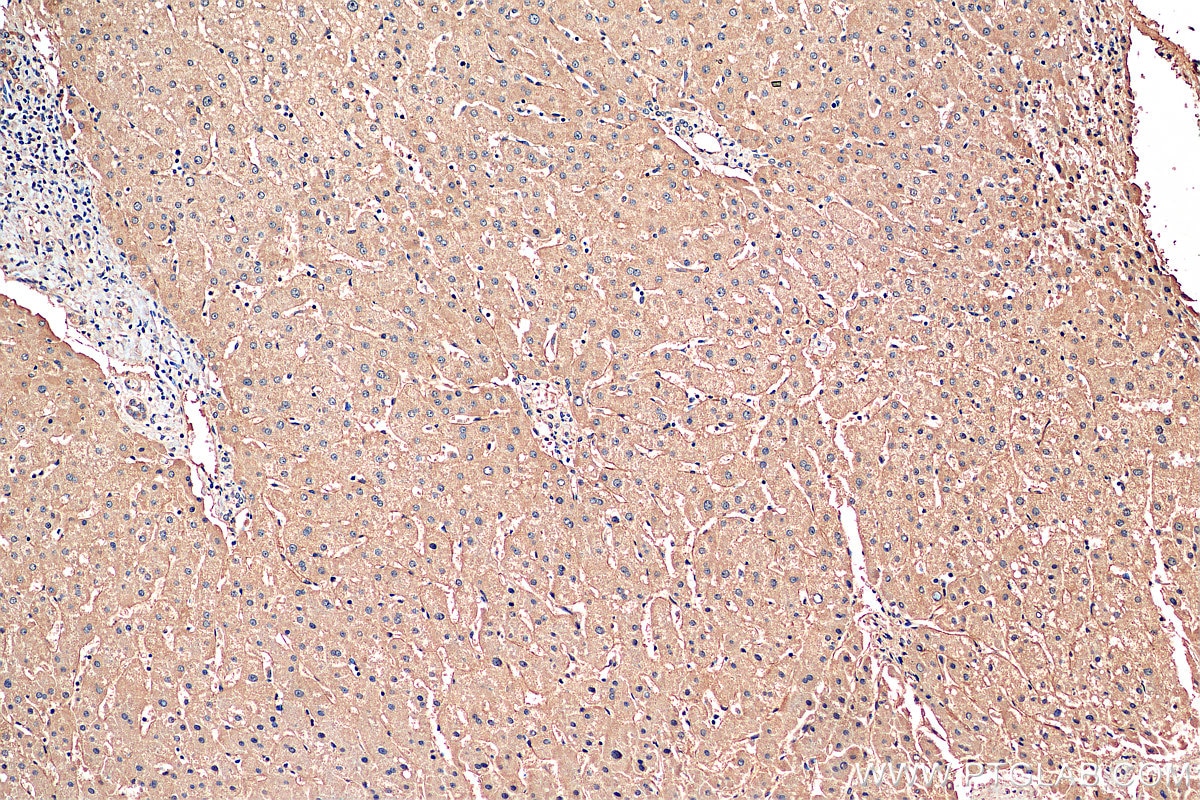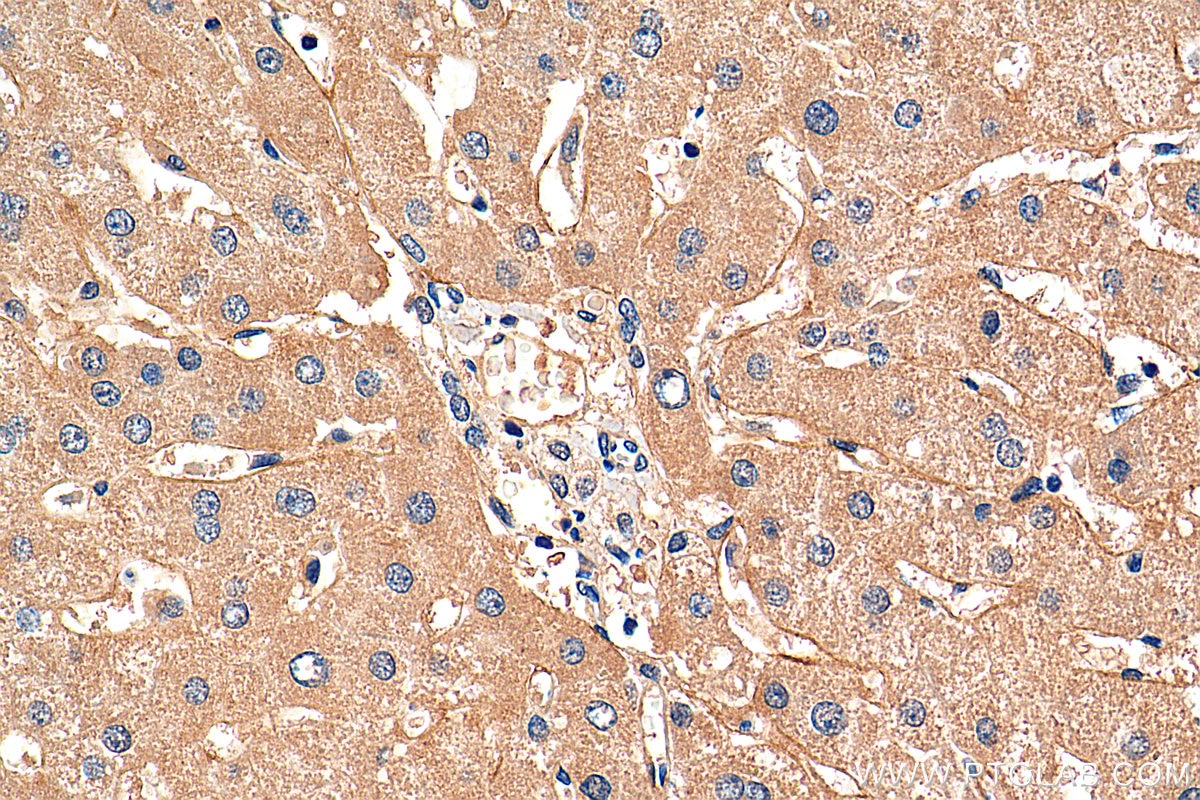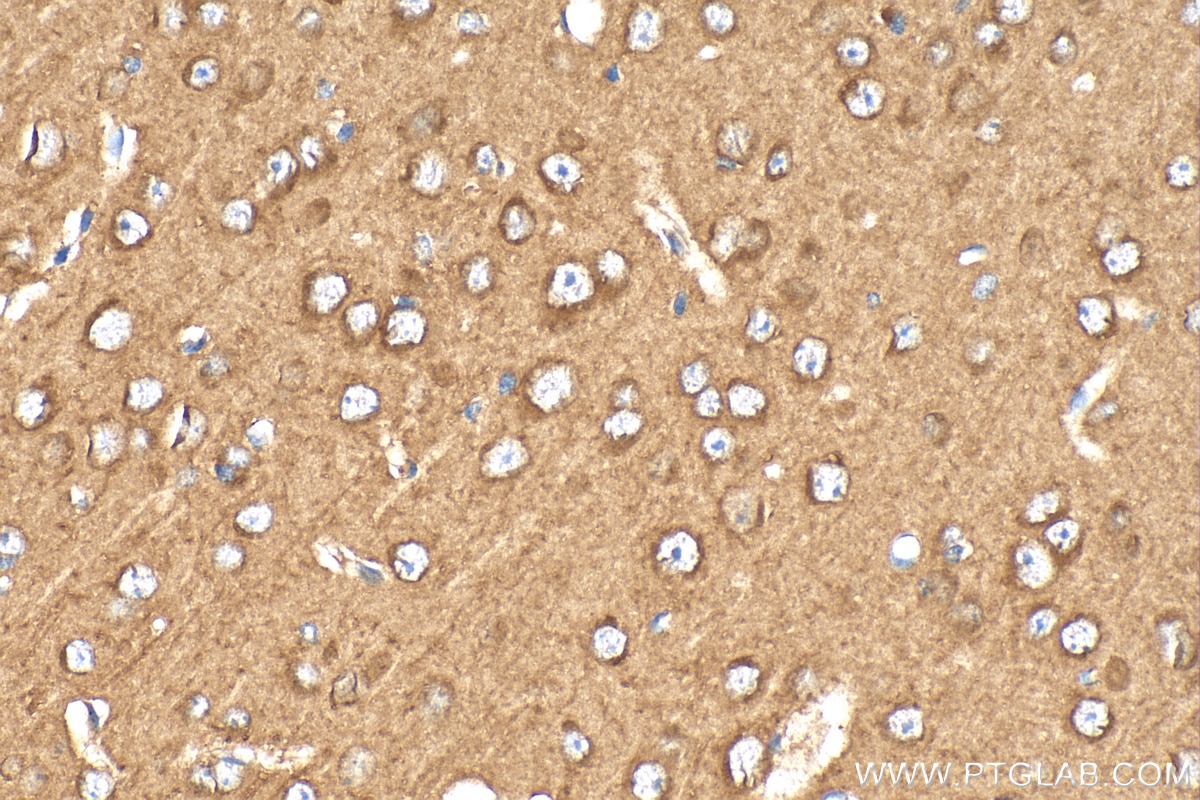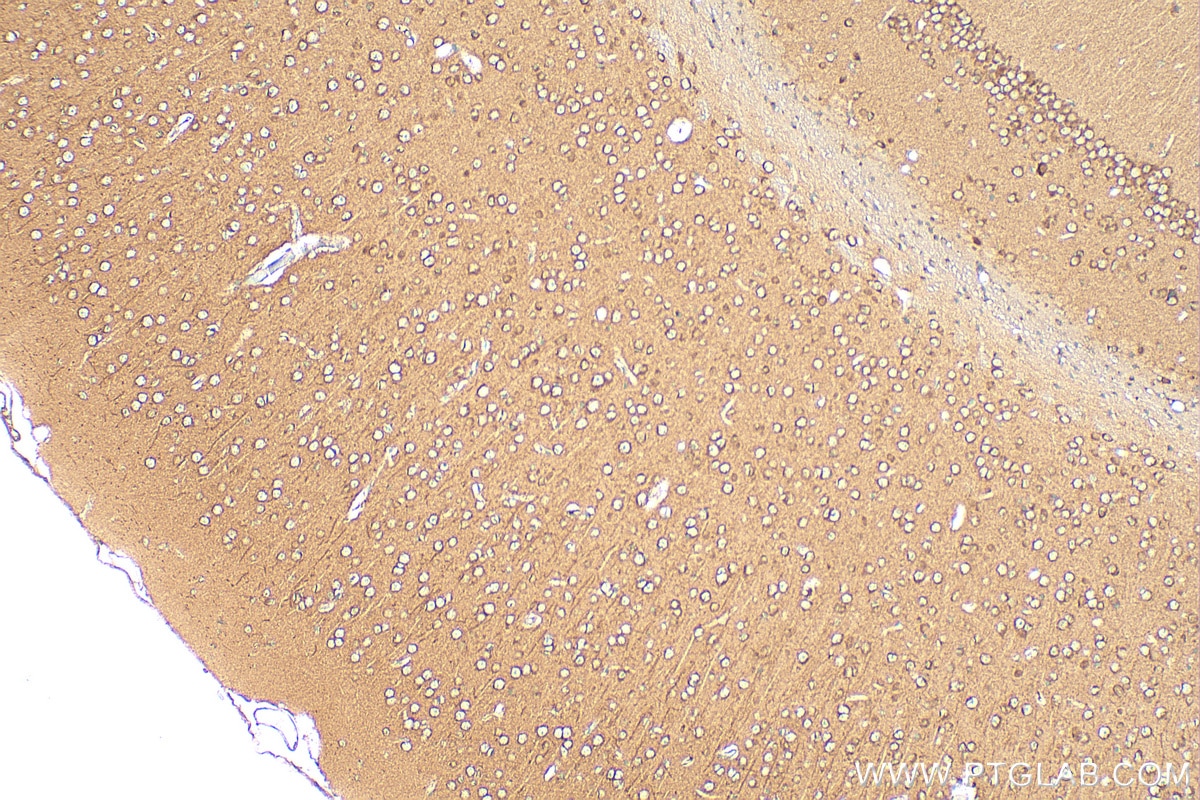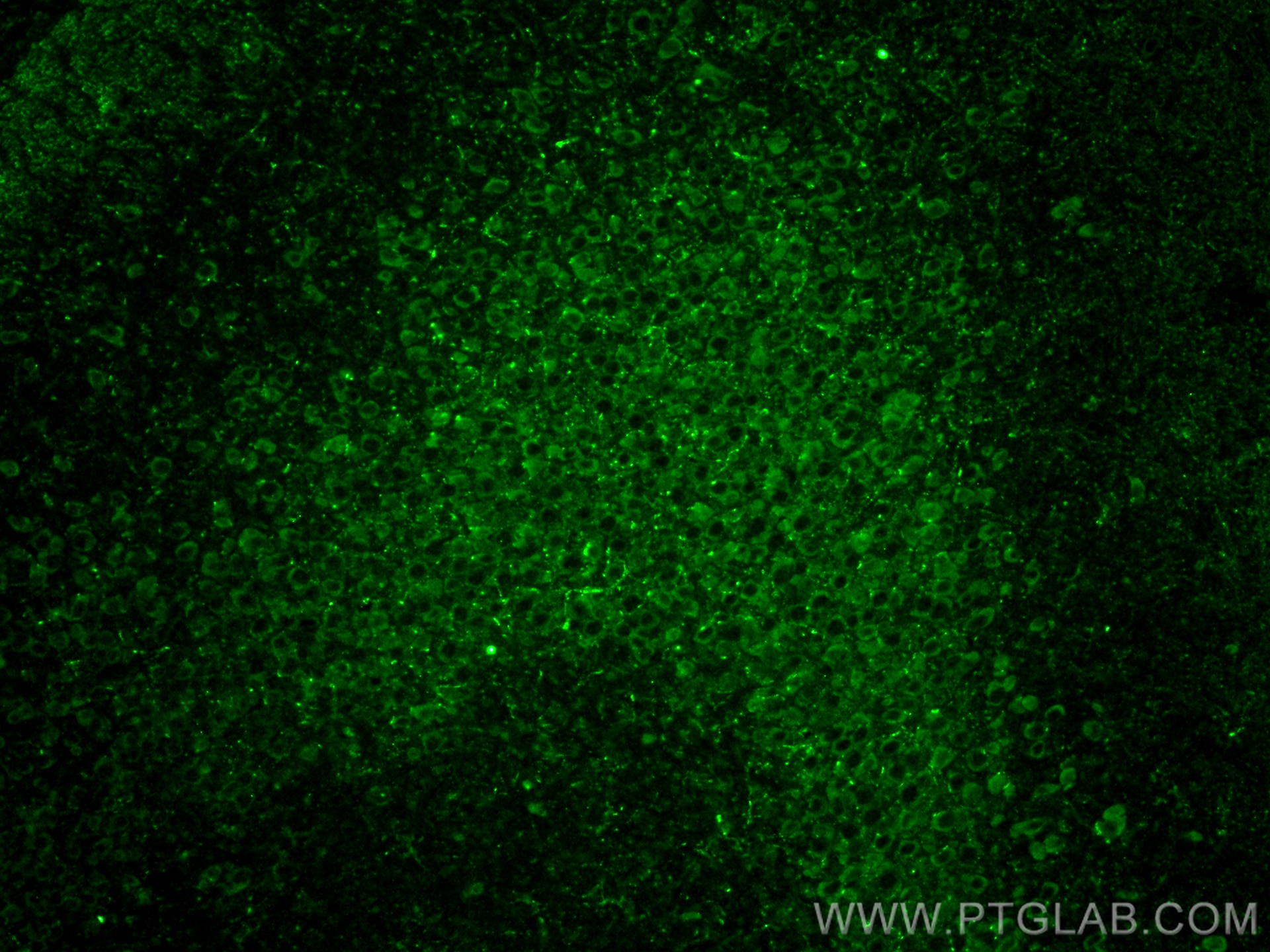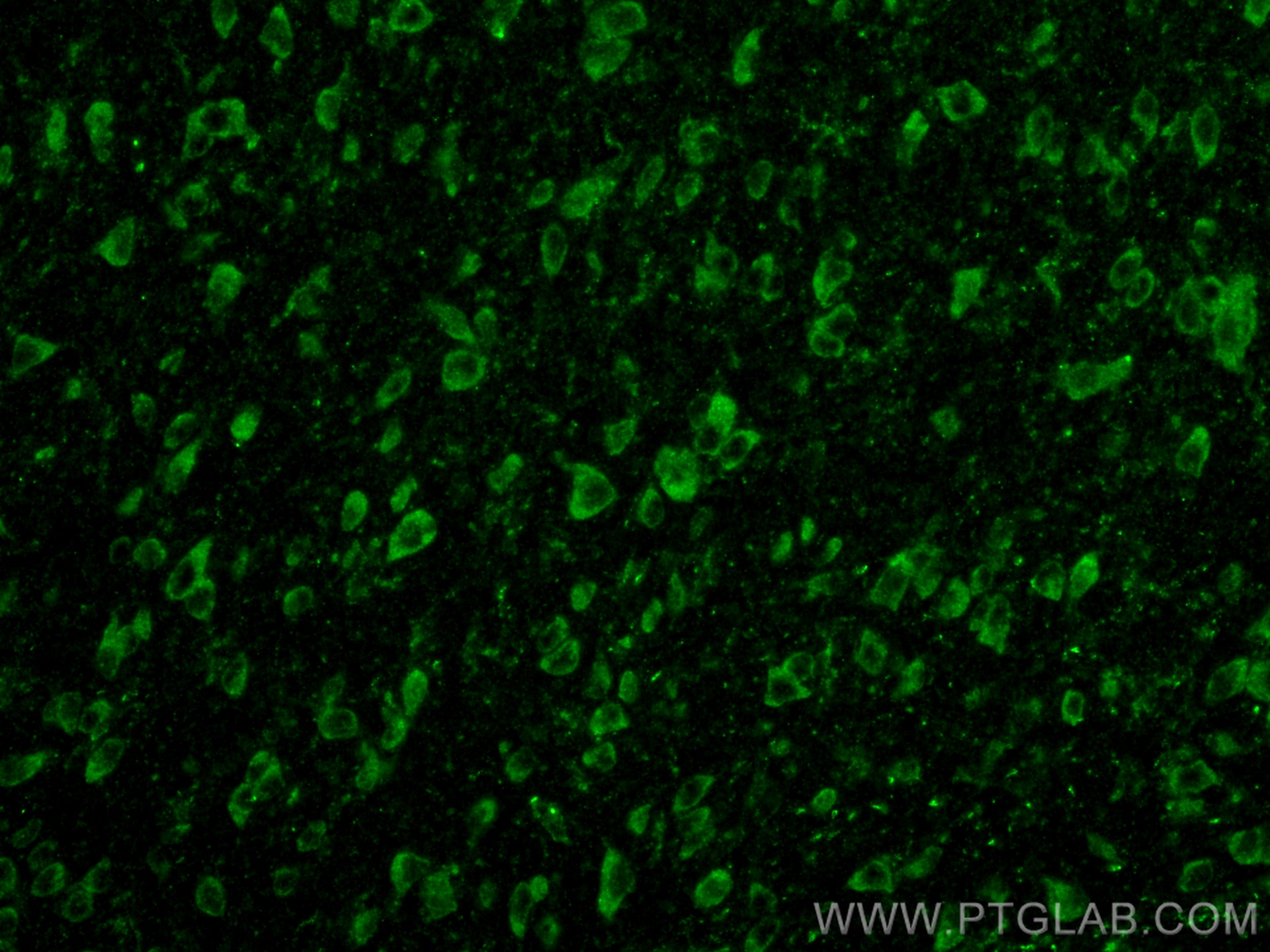DLL3 Polyklonaler Antikörper
DLL3 Polyklonal Antikörper für WB, IHC, IF-P, ELISA
Wirt / Isotyp
Kaninchen / IgG
Getestete Reaktivität
human, Maus, Ratte
Anwendung
WB, IHC, IF-P, ELISA
Konjugation
Unkonjugiert
Kat-Nr. : 25535-1-AP
Synonyme
Geprüfte Anwendungen
| Erfolgreiche Detektion in WB | Mauslebergewebe, Rattenhirngewebe |
| Erfolgreiche Detektion in IHC | humanes Lebergewebe, Maushirngewebe Hinweis: Antigendemaskierung mit TE-Puffer pH 9,0 empfohlen. (*) Wahlweise kann die Antigendemaskierung auch mit Citratpuffer pH 6,0 erfolgen. |
| Erfolgreiche Detektion in IF-P | Maushirngewebe |
Empfohlene Verdünnung
| Anwendung | Verdünnung |
|---|---|
| Western Blot (WB) | WB : 1:500-1:3000 |
| Immunhistochemie (IHC) | IHC : 1:50-1:500 |
| Immunfluoreszenz (IF)-P | IF-P : 1:50-1:500 |
| It is recommended that this reagent should be titrated in each testing system to obtain optimal results. | |
| Sample-dependent, check data in validation data gallery | |
Veröffentlichte Anwendungen
| WB | See 1 publications below |
| IHC | See 2 publications below |
Produktinformation
25535-1-AP bindet in WB, IHC, IF-P, ELISA DLL3 und zeigt Reaktivität mit human, Maus, Ratten
| Getestete Reaktivität | human, Maus, Ratte |
| In Publikationen genannte Reaktivität | human |
| Wirt / Isotyp | Kaninchen / IgG |
| Klonalität | Polyklonal |
| Typ | Antikörper |
| Immunogen | DLL3 fusion protein Ag21965 |
| Vollständiger Name | delta-like 3 (Drosophila) |
| Berechnetes Molekulargewicht | 65 kDa |
| Beobachtetes Molekulargewicht | 65-70 kDa |
| GenBank-Zugangsnummer | BC000218 |
| Gene symbol | DLL3 |
| Gene ID (NCBI) | 10683 |
| Konjugation | Unkonjugiert |
| Form | Liquid |
| Reinigungsmethode | Antigen-Affinitätsreinigung |
| Lagerungspuffer | PBS with 0.02% sodium azide and 50% glycerol |
| Lagerungsbedingungen | Bei -20°C lagern. Nach dem Versand ein Jahr lang stabil Aliquotieren ist bei -20oC Lagerung nicht notwendig. 20ul Größen enthalten 0,1% BSA. |
Hintergrundinformationen
The Delta-Notch pathway is an evolutionarily conserved signaling pathway which controls a broad range of developmental processes including cell fate determination, terminal differentiation and proliferation (PMID: 22353464). In mammals, four Notch receptors (NOTCH1-4) and five activating canonical ligands (JAGGED1, JAGGED2, DLL1, DLL3 and DLL4) have been described (PMID: 22353464). DLL3 is an inhibitory ligand of the Notch signaling pathway that is predominantly localizes to the Golgi apparatus (PMID: 17664336) in normal condition. Normal tissue expression of DLL3 is highest in fetal brain, and DLL3 plays a key role in somitogenesis in the paraxial mesoderm (PMID: 26311731). It has been reported that DLL3 is expressed on the surface of tumor cells of small cell lung cancer (SCLC) and high-grade neuroendocrine carcinomas (LCNEC) and has emerged as a novel therapeutic target (PMID: 26311731; 28487384).
Protokolle
| PRODUKTSPEZIFISCHE PROTOKOLLE | |
|---|---|
| WB protocol for DLL3 antibody 25535-1-AP | Protokoll herunterladen |
| IHC protocol for DLL3 antibody 25535-1-AP | Protokoll herunterladenl |
| IF protocol for DLL3 antibody 25535-1-AP | Protokoll herunterladen |
| STANDARD-PROTOKOLLE | |
|---|---|
| Klicken Sie hier, um unsere Standardprotokolle anzuzeigen |
Publikationen
| Species | Application | Title |
|---|---|---|
Transl Oncol High expression of DLL3 is associated with a poor prognosis and immune infiltration in invasive breast cancer patients. | ||
Technol Cancer Res Treat Investigation of Candidate Genes and Pathways in Basal/TNBC Patients by Integrated Analysis. | ||
J Immunother Cancer Combined DLL3-targeted bispecific antibody with PD-1 inhibition is efficient to suppress small cell lung cancer growth. |
